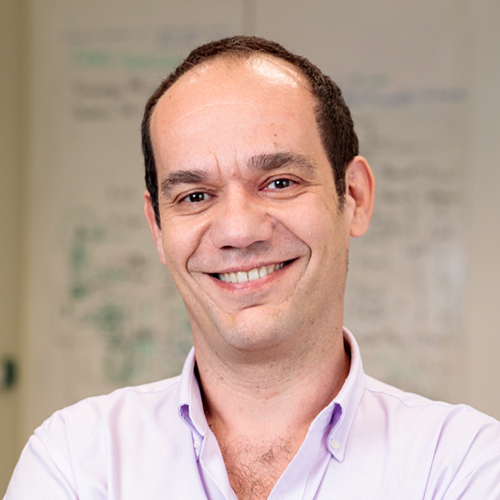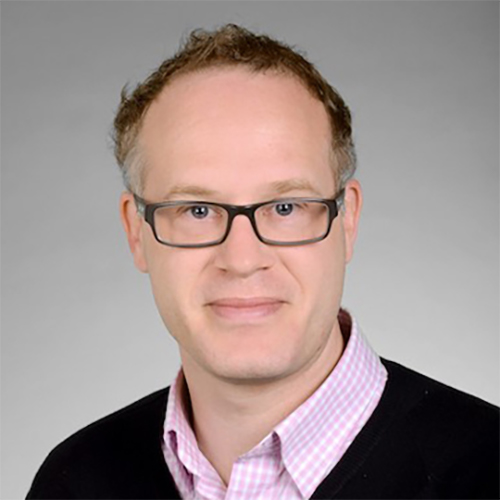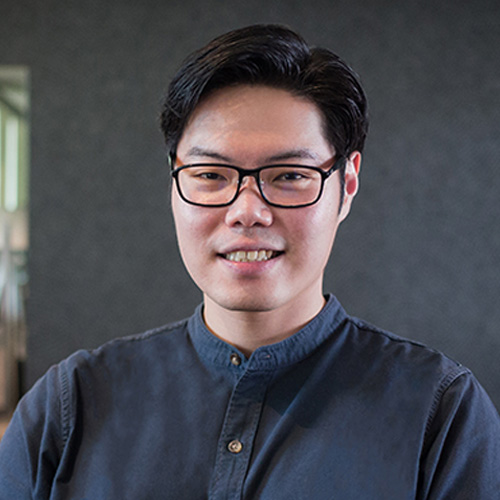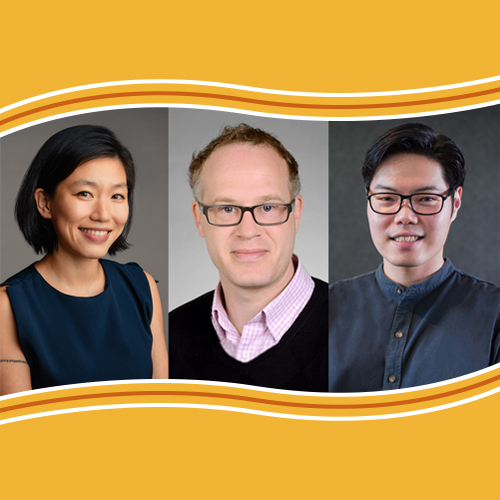Highlights
CQT welcomes three new Principal Investigators: Meet Yvonne Gao
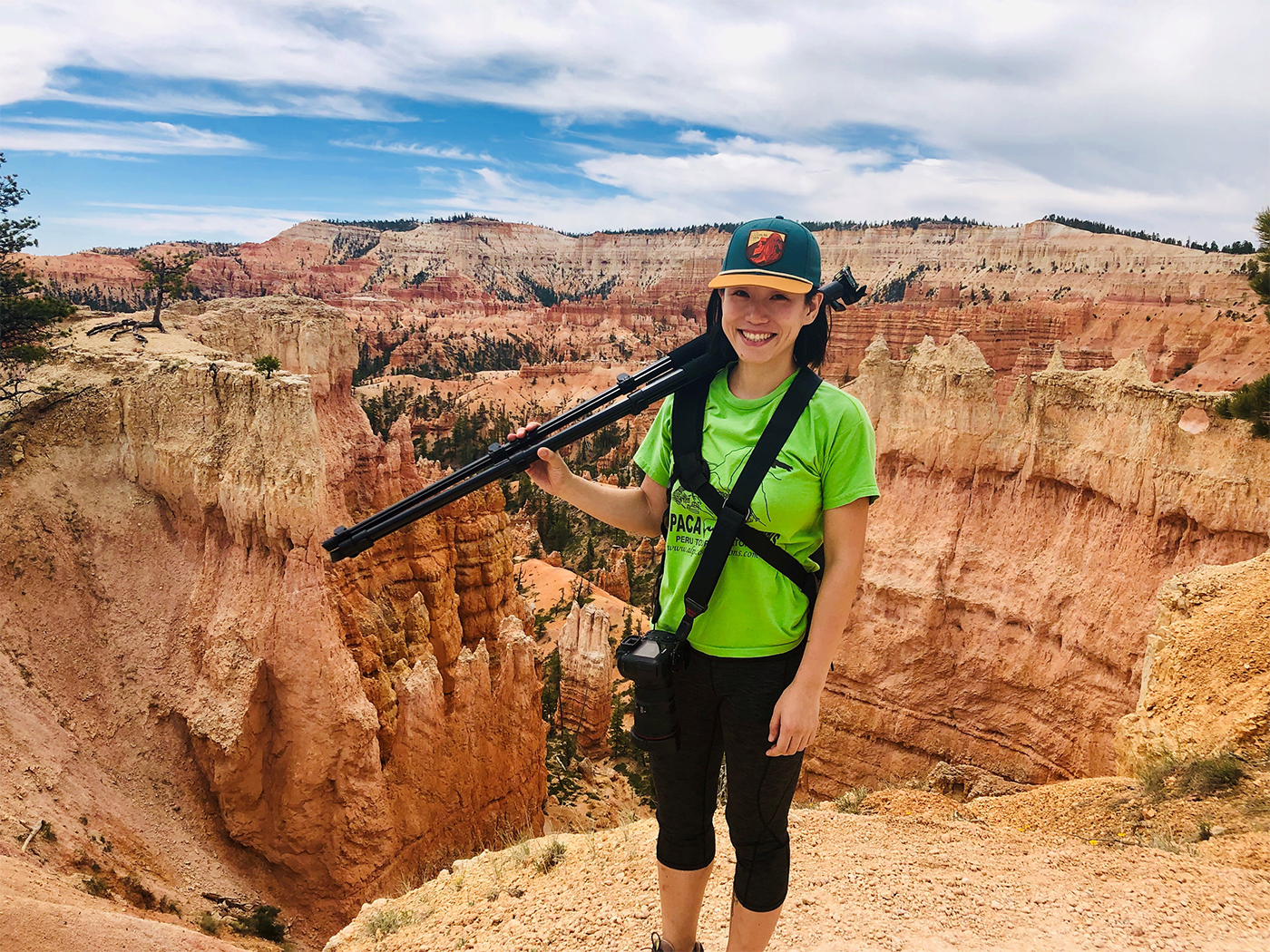 Outside the lab, Yvonne enjoys taking long hikes. She is pictured here at the Bryce Canyon, where she squeezed in a couple of hikes on route to the Grand Canyon. She also enjoys bouldering and dancing.
Outside the lab, Yvonne enjoys taking long hikes. She is pictured here at the Bryce Canyon, where she squeezed in a couple of hikes on route to the Grand Canyon. She also enjoys bouldering and dancing.
Yvonne Gao is one of three new Principal Investigators joining CQT in May 2020. She brings to CQT and the NUS Department of Physics, Faculty of Science a background in the design and testing of superconducting qubits. She is a recipient of a fellowship from the National Research Foundation (NRF), class of 2020, for research “Enabling Scalable Quantum Computation via a Programmable Quantum Router”. More information about Yvonne's group can be found at quantumcrew.org. She agreed to answer a few questions to introduce her ambitions and approach to life.
Tell us about your research
I’m an experimental physicist. I work on building quantum circuits that can be tailored to study novel phenomena in quantum physics and also engineered to perform crucial quantum computing tasks. In particular, we construct our systems in a modular architecture. Compared to scaling up by simply adding more and more qubits on a single chip, which seems to be what some companies are doing now, this approach allows better reconfigurability and enhanced robustness against local failures
How do you build quantum circuits in the lab?
These circuits are built by depositing superconducting materials, such as aluminium, in carefully designed patterns. These circuits are then cooled down in our cryogenic system to one hundredth of a degree above zero to capture their quantum behaviour.
Quantum computing has been in the news a lot recently. What are your hopes for the field?
Quantum computing is indeed a very exciting field at the moment. I look forward to more and more inter-disciplinary efforts where domain experts from various scientific and industry sectors work together with quantum physicists to come up with creative and practical applications of quantum computing. Additionally, I also hope that as quantum scientists, we do not get overly focused on the industrialisation of quantum computing. It’s still important to have fun along the way, and to continue our studies in the more fundamental aspects of quantum physics. Finally, I also really hope to see more women in this field!
Could you expand on what you mean about the importance of having fun during research?
I think in general people thrive more when they are having fun! This might be even more so for experimental research work - we encounter all sorts of problems every day that cause non-idealities in our experiment, from equipment malfunctioning, to even cosmic rays sometimes (they can cause a temporary deterioration of the performance of our device). It can be quite frustrating and dreadful if the only thing we care about is to get results. But when we take these challenges as pieces of an interesting puzzle and actually enjoy the process of solving them, it makes the day-to-day lab experience a lot more exciting. This often leads to some unexpected discoveries too as we come up with creative solutions for the problems we encounter.
How did you get to CQT?
I did my PhD at Yale with Rob Schoelkopf on building quantum hardware with superconducting circuits, and undergraduate in physics in the University of Oxford. I returned to Singapore in 2018 to be a part of the Agency for Science, Technology and Research (A*STAR) Quantum Technologies for Engineering programme. I joined NUS as a Presidential Young Professor earlier this year to continue my work on quantum circuits in Singapore. I’m thrilled to join CQT and be part of the diverse community of quantum scientists here. After almost a decade of overseas studies, I’m glad to be home and look forward to contributing to the quantum ecosystem in Singapore.
What is the hardest part about getting to where you are now?
For me, the hardest part, and possibly one of the most important aspects, of becoming an independent scientist is repeatedly picking myself up after failed attempts and getting over the fear of trying again. During my scientific career so far, there have been numerous unsuccessful ventures, in building experiments, competing for grants or developing new ideas. While they are terribly frustrating, they are also the most fruitful learning experience for me, and the best preparation for my next attempt!
Now that you are a PI, what is changing for you? What are you looking forward (or not looking forward) to?
One main change is that as PI, the success of our experiments no longer hinges on how well I can accomplish something in the lab myself, but rather on how well I mentor and empower my team. I certainly hope I will still have plenty of time to be in the lab and tinker with the experiments. More importantly though, I look forward to creating a supportive and stimulating environment for everyone in my team to flourish and make impactful innovations.
What about life outside of the lab?
Outside the lab, I spend my time bouldering, dancing, and doing long hikes whenever I get the occasion. Since coming back to Singapore, I have also been playing an active role in building the quantum ecosystem in Singapore through public talks and panel discussions.
Are you planning any trips in Asia? It could be something to look forward to.
Good question! Yes, I am indeed planning on continuing hiking in Asia. I have been to both the Everest and Annapurna Base Camps several years ago and I have really fond memories about these trips. I plan on re-visiting the Annapurna Base Camps when we can travel again. It’s a beautiful hike with spectacular views of the Annapurna range. Hikes are a great time for clearing my head and getting disconnected from the city life for a bit.



